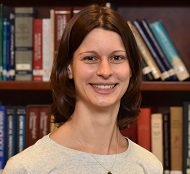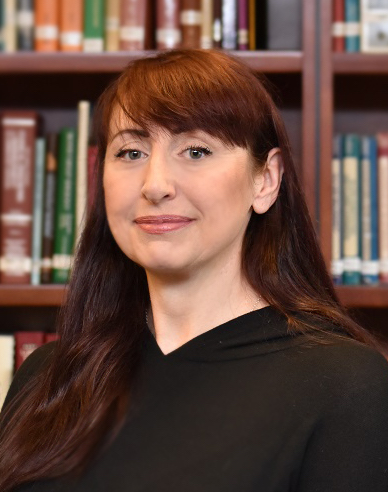Keynote Speaker: Bette Korber, PhD
Dr. Bette Korber is a Laboratory Fellow at the Los Alamos National Laboratory in the Theoretical Biology and Biophysics Group. Her work focuses on viral evolution, the human immune response to infection, and vaccine design. She leads an interdisciplinary team that provides bioinformatics, theoretical, and statistical support in collaborative efforts with experimental researchers, working primarily on HIV, but also on ebolavirus, hepatitis C, and influenza. Like so many, she recently began to work on coronaviruses in response to the global pandemic. Some highlights from of her work include vaccine designs to cope with viral diversity, characterizing the evolution of HIV under immune pressure during infection, and developing sequence-based signature analyses methods that include phylogenetic corrections to compensate for founder effects. Her mosaic HIV vaccine design is currently being evaluated in a Phase 2b human clinical trial called Imbokodo, due to be completed in 2021. Some of her awards and honors include: the E.O. Lawrence Award, the Dept. of Energy’s highest scientific honor (2004); the Secretary of the Dept. of Energy Award for her work on the Ebola Task Force (2017); the Richard P. Feynman Innovation Prize (2018); and R&D 100 Scientist of the Year (2018).
ESI Speaker: Hannah Sperber, M.Sc.
Hannah Sabeth Sperber is a doctoral student in Satish Pillai’s lab at Vitalant Research Institute. Her graduate work focuses on developing and implementing unbiased technologies to identify biomarkers and host immune features of HIV latently-infected cells – the main obstacle to an HIV cure. In her graduate studies, she discovered that the ectonucleotidase CD73 plays a key role in HIV persistence by reinforcing HIV latency and suppressing immune clearance of infected cells. She is now investigating the potential of CD73 as a pharmacological target to eliminate the latent HIV reservoir.
Hannah graduated from Humboldt University in Berlin, Germany, with a Master’s degree in Molecular Life Science after completing her Master’s thesis project at the Weizmann Institute in Israel. She then entered a Ph.D. program at the Free University in Berlin, Germany, performing her doctoral thesis project in the USA. During that time, she has received several conference scholarships to present her Ph.D. thesis work at international meetings, including the International Scholarship Award (AIDS - 2018), the Young Investigator Grant (HIV Persistence During Therapy – 2019), and the New Investigator Scholarship (CROI – 2020).
CFAR Science Spotlight: Vitalant Research Institute
Mars Stone, PhD, is a Senior Scientist at VRI and Director of the Viral Reference Laboratory and Repository Core. Dr. Stone joined VRI after completing graduate and post doctoral work at the University of California, Davis, investigating rhesus macaque models of HIV vaccines. Currently research interests revolve around transfusion-transmitted viruses, blood screening and diagnostics assays, and transfusion efficacy. The Stone lab leads a range of multicenter clinical and translational studies in these areas.
Brian Custer is the Director of Epidemiology and Policy Science at Vitalant Research Institute (VRI) San Francisco and Vice President of Research and Scientific Program at Vitalant. He is also an Adjunct Professor in the Department of Laboratory Medicine at UCSF, and the Comparative Health Outcomes, Policy & Economics (CHOICE) Institute at the University of Washington. He earned his MPH and PhD degrees from the University of Washington in Seattle. He conducts research on a spectrum of transfusion medicine topics in donor and recipient epidemiology, and health economics of blood safety policy, primarily focused on infectious diseases. He is the principal investigator for two parts of the NHLBI-funded REDS-IV-P project: the San Francisco Bay Area hub of the Domestic Program and the Brazil Transfusion Safety Research Program. He is also the principal investigator for two large studies funded by the FDA: the Laboratory and Risk Factor Coordinating Center of the Transfusion-Transmissible Infections Monitoring System (TTIMS) and the HIV Risk Questionnaire (HRQ) Study. He is actively involved in several committees and working groups of AABB, such as Transfusion Transmitted Diseases (TTD), a member of the Transfusion-Transmitted Infectious Diseases Working Party of ISBT, and the lead of the ISBT Transfusion Research Young Investigator Training (I TRY IT). He has served on the US Department of Health and Human Services Advisory Committee on Blood and Tissue Safety and Availability (ACBTSA), and continues to participate in working groups and subcommittees of ACBTSA.



